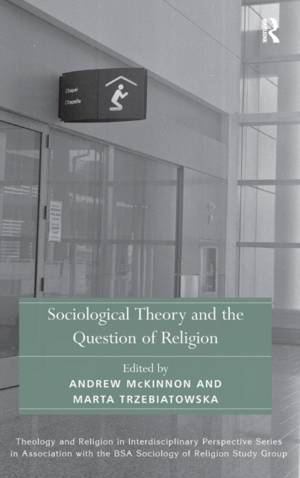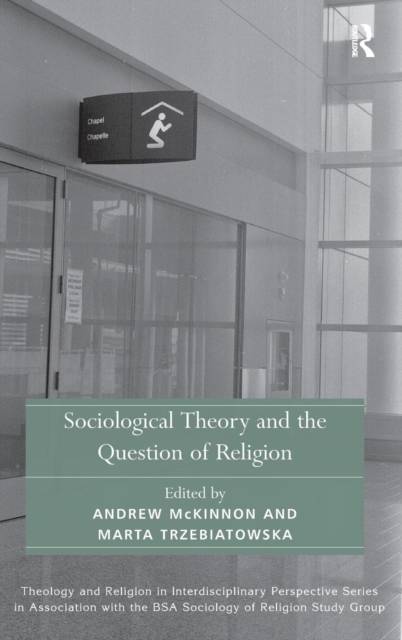
Door een staking bij bpost kan je online bestelling op dit moment iets langer onderweg zijn dan voorzien. Dringend iets nodig? Onze winkels ontvangen jou met open armen!
- Afhalen na 1 uur in een winkel met voorraad
- Gratis thuislevering in België vanaf € 30
- Ruim aanbod met 7 miljoen producten
Door een staking bij bpost kan je online bestelling op dit moment iets langer onderweg zijn dan voorzien. Dringend iets nodig? Onze winkels ontvangen jou met open armen!
- Afhalen na 1 uur in een winkel met voorraad
- Gratis thuislevering in België vanaf € 30
- Ruim aanbod met 7 miljoen producten
Zoeken
Sociological Theory and the Question of Religion
€ 274,95
+ 549 punten
Omschrijving
Religion lies near the heart of the classical sociological tradition, yet it no longer occupies the same place within the contemporary sociological enterprise. This relative absence has left sociology under-prepared for thinking about religion's continuing importance in new issues, movements, and events in the twenty-first century. This book seeks to address this lacunae by offering a variety of theoretical perspectives on the study of religion that bridge the gap between mainstream concerns of sociologists and the sociology of religion. Following an assessment of the current state of the field, the authors develop an emerging critical perspective within the sociology of religion with particular focus on the importance of historical background. Re-assessing the themes of aesthetics, listening and different degrees of spiritual self-discipline, the authors draw on ethnographic studies of religious involvement in Norway and the UK. They highlight the importance of power in the sociology of religion with help from Pierre Bourdieu, Marx and Critical Discourse Analysis. This book points to emerging currents in the field and offers a productive and lively way forward, not just for sociological theory of religion, but for the sociology of religion more generally.
Specificaties
Betrokkenen
- Uitgeverij:
Inhoud
- Aantal bladzijden:
- 274
- Taal:
- Engels
- Reeks:
Eigenschappen
- Productcode (EAN):
- 9781409465515
- Verschijningsdatum:
- 28/11/2014
- Uitvoering:
- Hardcover
- Formaat:
- Genaaid
- Afmetingen:
- 156 mm x 234 mm
- Gewicht:
- 562 g

Alleen bij Standaard Boekhandel
+ 549 punten op je klantenkaart van Standaard Boekhandel
Beoordelingen
We publiceren alleen reviews die voldoen aan de voorwaarden voor reviews. Bekijk onze voorwaarden voor reviews.










